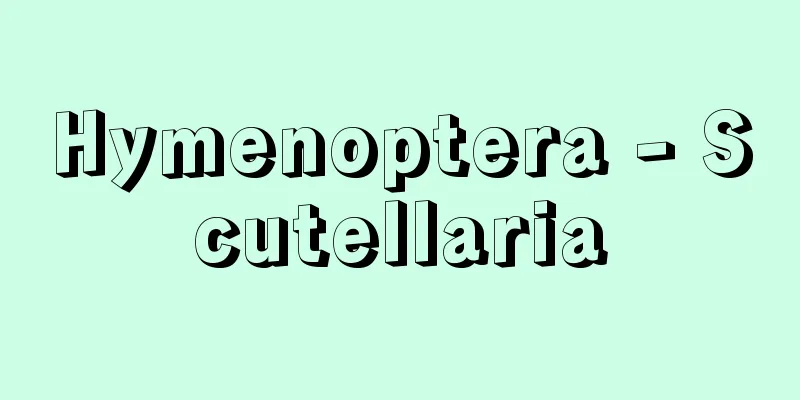Prose - sanbun (English spelling) prose English

|
Means ordinary writing. In this case, the "prose" in prose means no restrictions, and refers to writing that is not restricted by the number of characters or rhythm, as in poetry. This includes all kinds of writing, from everyday descriptions and explanations to all kinds of writing for public and private use, and even literary writing. Prose can also mean something ordinary, routine, or ordinary writing or discussion, and Prosa can also mean something bland or plain. Furthermore, when used as an adjective, prosaic, prosaïque, or prosaisch can sometimes simply mean "prosaic," but it is usually used to mean something unpoetic, uninteresting, boring, ordinary, vulgar, or dry. In other words, the word prosaic is completely opposed to poetic beauty, the elevation of human emotions, or unrestrained imagination. When we say "prosaic life," we mean that life is prosaic in the above sense. However, even if the word prose is used in this way, prose itself is not necessarily always prose-like in that way. Of course, the most common form of prose is written expression in general, with non-literary explanations and descriptions, which is the more common form, but on the other hand there is prose as literary expression (not restricted by rhythm), which is found not only in literary works but also in various kinds of written expression. It shows a unique form in novels in particular, and as Hirotsu Kazuo's theory of the prose spirit in "The Position of Prose Art" (1924) shows, he highly values the art of prose, saying, "In the end, to put it simply, among the many kinds of art, prose art is next to life. To the right of it are various arts such as poetry, fine art, and music, but to the left is life." The argument is that it is important to pursue life objectively through prose, and instead of becoming romantic, one should dig deep and reveal the truth of life, even if it means getting covered in mud and getting hurt. This is unique to Japan, but it is like this when one aspect of the nature of prose is fully developed. It can be said that prose contains such things. [Hideo Odagiri] "The Position of Prose Art" by Hirotsu Kazuro (included in the 9th volume of the Complete Works of Hirotsu Kazuro, 1974, Chuokoron-Shinsha)" ▽ "Alain/Valéry Collection: Art Essays/Others, edited by Kawamori Yoshizo and Kuwabara Takeo (included in 66 Masterpieces of the World, 1980, Chuokoron-Shinsha)" ▽ "The Theory of Prose" by Shklovsky, translated by Mizuno Tadao (1971, Serika Shobo)" Source: Shogakukan Encyclopedia Nipponica About Encyclopedia Nipponica Information | Legend |
|
普通の文章の意。散文の「散」というのは、この場合、制限がない、という意味で、詩歌のように字数や韻律やによって規制されることのない文のことである。日用の記述・説明の文をはじめとして、公用・私用のあらゆる文章から文学的な文章に至るまでが、ここに含まれる。なおproseには、平凡なこと、常套(じょうとう)事、または平凡な文章や議論、などの意味もあり、Prosaにも無趣味・殺風景の意味がある。さらに形容詞として「散文的」prosaic, prosaïque, prosaischという場合には、単に「散文の」というだけの意味で使われる場合もあるが、普通には、詩趣のない、趣味のない、とか、退屈な、平凡な、俗悪な、無味乾燥な、とかという意味で使われる。つまり、散文的ということばは、詩的な美しさや人間的な感情の高揚や奔放なイマジネーションなどとは、まったく対立的なものということになっている。「散文的な生活」という場合には、生活が前記のような意味で散文的だということである。 けれども、散文的ということばはそういうふうに使われようと、散文そのものは、つねにそういうふうに散文的だとは決まっていない。もちろん、散文のもっとも普通の形としては、非文学的な説明や記述による文書的表記一般としてのそれがあり、このほうが多いのだが、これに対して文学的表現(韻律の制約を受けぬ)としての散文が一方にあって、文学作品に限らず、諸種の文章表現のなかにそれはみいだされる。とくに小説のなかにそれは独特な形を示しており、『散文芸術の位置』(1924)での広津和郎(かずお)の散文精神論が示すように、散文による芸術を高く評価して、「結局、一口でいえば、沢山(たくさん)の芸術の種類の中で、散文芸術は、すぐ人生の隣りに居るものである。右隣りには、詩、美術、音楽というやうに、いろいろの芸術が並んでゐるが、左隣りはすぐ人生である。」とする。人生の、散文による客観的な追求がたいせつで、ロマンチックになるかわりに、泥まみれになり傷を負いつつも人生の真実をどこまでも掘り下げて明らかにしてゆく、というのがこの論である。これは日本独特のものだが、散文の性質の一面を存分に展開するとこうなる。こういうものを散文は潜めているということになろう。 [小田切秀雄] 『広津和郎著「散文芸術の位置」(『広津和郎全集 第9巻』所収・1974・中央公論社)』▽『河盛好蔵・桑原武夫責任編集『アラン/ヴァレリー集 芸術論集/他』(『世界の名著66』所収・1980・中央公論社)』▽『シクロフスキー著、水野忠夫訳『散文の理論』(1971・せりか書房)』 出典 小学館 日本大百科全書(ニッポニカ)日本大百科全書(ニッポニカ)について 情報 | 凡例 |
Recommend
Kishizawa Traditional Ceremony Department
...The shamisen player for the first Tokiwazu Moj...
"The Battle of Osaka in Summer" - The Battle of Osaka in Summer
According to the Honmaru map by the master carpen...
Antilia
...Most of the area is under the influence of tra...
ASAT - Esat
Anti-satellite : An anti-satellite weapon. The U.S...
Grassland Peichuan
1787-1867 A Confucian scholar in the late Edo per...
Laugier, MA (English spelling)
...These aspects had already appeared individuall...
Empress Teimei
Empress of Emperor Taisho. Mother of Emperor Show...
Abkhaz people
…Among the fictitious kinship systems, wet nurses...
Nicolle, CJH (English spelling)
…It has been epidemic all over the world since an...
Bronze bell
A bronze bell used in festivals during the Yayoi ...
Gödel - Kurt Gödel
American mathematician. Born in Brun (now Brno, C...
Ink - Inki (English spelling) ink
A liquid used for writing or printing. Also calle...
Triazine
C 3 H 3 N 3 (81.08). A heterocyclic 6-membered ri...
Company affairs - Shamu
〘Noun〙① Abbreviation of "shamushiki (shrine a...
Tonan
A district in Morioka City, Iwate Prefecture. In ...









